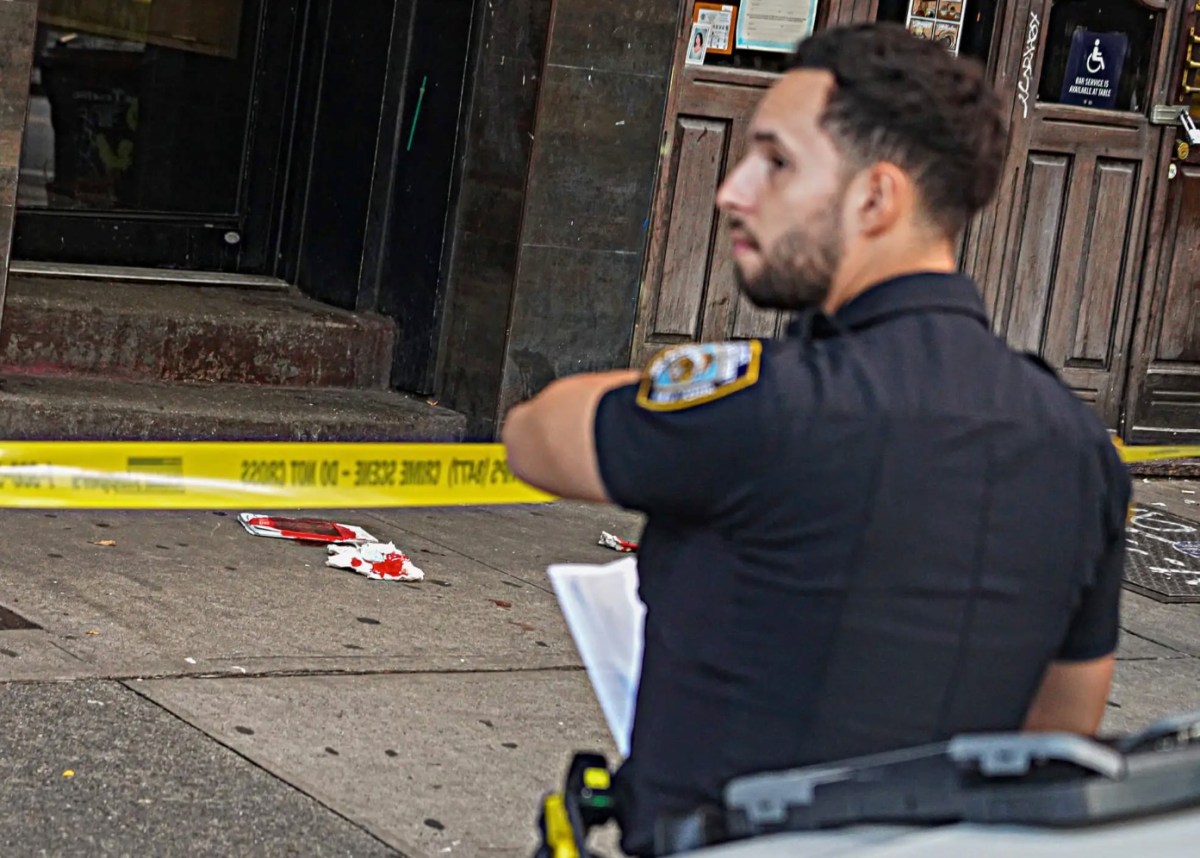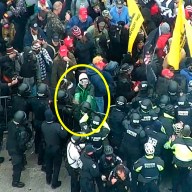 Roberto Benigni won an Oscar for Best Actor for “Life is Beautiful”
Roberto Benigni won an Oscar for Best Actor for “Life is Beautiful”
Though it helps, winning an Oscar isn’t a guarantee of future success. Even ignoring the many nominees who have gone on to very little, there are plenty of Academy Award winners who found post-Oscar life bumpy, if not tragic, or at least pleasant and quiet. Here are but some:
Emil Jannings: The first winner of the Best Actor Oscar arguably suffered the strangest fate of all fellow winners. An established star of the German screen – and a regular for F.W. Murnau, in “The Last Laugh” and “Faust” – the imposing, porcine Jannings emigrated to Hollywood in 1927 and quickly made a name for himself. In only his second year in town he made history with his Academy Award for “The Last Command,” Josef Von Sternberg’s blistering tale of a former Russian general who falls into disrepair and winds up with a second life, of sorts, in Hollywood movies. It’s a command (heh?) performance, but the timing was off: sound was about to revolutionize Hollywood, silent cinema was about to die and, like many foreign stars at the time, Jannings’ accent was so thick that few Americans could understand him. This tale was surely a major influence on “The Artist,” but at least that film’s protagonist didn’t do what happened next: Jannings bounced back to Germany, where he eventually aligned himself with the Nazi party, and starred in several Nazi films. Predictably, his attempt to make up with America after the war did not fare well, and he retired to Austria, where, in 1950, he died of liver cancer at 66. Jannings can be seen, portrayed by Hilmar Eichorn, in the climax of “Inglorious Basterds,” where it is implied that he was killed during the movie theater massacre.
Luise Rainer: At 103, Rainer is the oldest living Oscar-winning thespian, but she’s only been in two films since 1938. A Jewish émigré from Germany, Rainer won consecutive Best Actress trophies in 1936 and 1937, for “The Great Ziegfield” and “The Good Earth,” the latter of which featured her passing as a Chinese farmer. The twin accolades raised expectations precipitously, and an unsure Hollywood only gave her small, uninteresting roles. So she quit Hollywood. She studied medicine, hit the stage and every now and then entertained bids to return to the screen, from Hollywood as well as from Federico Fellini, who cast her in “La Dolce Vita” only for her to quit before production. And she’s still goin’.
James Dunn: A Vaudevillian and a staple of Pre-Code Hollywood cinema, Dunn was, alas, an alcoholic, and his condition all but torpedoed his career. It wasn’t exactly typecasting when he played boozing, if warm, Irish father in 1945’s “A Tree Grows in Brooklyn,” which netted him a Supporting Actor trophy. But his comeback was short-lived: by the 1950s he was unemployed, bankrupt and once again struggling with alcohol. The remainder of his career, till his death in 1967, was largely in television, including the sitcom “It’s a Good Life.”
Harold Russell: Russell was a real-life GI who lost both his hands in WWII. When it came time to cast for the role of a severely handicapped soldier in the post-war saga “The Best Years of Our Lives,” director William Wyler tapped him. It wasn’t just stunt casting: Russell had a decency and chipperness that can’t be faked. After he won his Supporting Actor Oscar, he was told by Wyler that there weren’t many roles for actors without hands. He only made two other films – 1980’s “Inside Moves” and 1997’s “Dogtown” – and instead went to school, got a business degree and wrote two memoirs.
Shirley Booth: Booth was a Broadway star who won one of her Tonys for “Come Back Little Sheba,” a role she recreated for the 1952 film version, opposite Burt Lancaster. Even after winning Best Actress, she still preferred the stage, to which she returned. Which we can all agree is pretty badass. She only made four other films, but did play the title role on the TV show “Hazel,” for which she won two Emmys.
Miyoshi Umeki: Japanese singer and actress Miyoshi Umeki recorded American jazz standards both in Japanese or partial-English. She came to America and wound up cast in “Sayonara,” for which she won a Supporting Actress Oscar. Hollywood didn’t know what to do with her, so other mediums picked her up: first, she won a Tony for “The Flower Drum Song,” which was made into a movie in 1961 – one of Umeki’s few other film appearances. Then TV nabbed her: she was also a variety show mainstay and won accolades, as the stoic housekeeper on “The Courtship of Eddie’s Father.”
Tatum O’Neal: Don’t win an Oscar as a kid. Unless you’re Anna Paquin. Although O’Neal’s “Paper Moon” rapscallion mops the floor with Paquin’s “The Piano” kid.
Peter Finch: Not to be ghoulish, but technically the longtime Brit actor never got to reap the benefits of his 1976 “Network” Best Actor win. (Even though he’s obviously a supporting character, but whatever.) He never even knew he won: he died of a heart attack in the lobby of the Beverly Hills Hotel, at 60, mere weeks before the Oscars ceremony. His last seen work was as Israeli Prime Minister Yitzhak Rabin in the 1977 TV movie “Raid on Entebbe,” one of the many films and TV movies made on the subject at the time. [Update: Originally this article said “See also: Henry Fonda, who posthumously won for “On Golden Pond.” As a number of readers have pointed out (all politely, which is nice), this is untrue. Fonda wouldn’t die until August of 1982, several months after winning his final Oscar. His daughter Jane accepted the award for him as he was too sick to attend the ceremony.]
Beatrice Straight: Finch’s “Network” costar was on-screen for five minutes and forty seconds, and still won a Supporting Actress Oscar. That’s still a record – sorry, Judi Dench of “Shakespeare in Love” – and all the more notable because she did very little else of note, beyond a supporting role in “Poltergeist.”
F. Murray Abraham: The “Amadeus” star is the poster child of wasted Oscar potential. Not that he’s not talented – it’s just that he never found the right roles, in part, perhaps, because few knew what to do with someone whose screen presence is mischievous, cunning yet refined. His first post-Oscar film role was in “The Name of the Rose,” and after that the next closest thing to a significant film is “The Bonfire of the Vanities.” Still, of late Abraham has been getting some juicy supporting roles, notably two memorable appearances on “Louie.” Abraham is aware of his infamy, and pretty sobering about it: “The Oscar is the single most important event of my career. I have dined with kings, shared equal billing with my idols, lectured at Harvard and Columbia. If this is a jinx, I’ll take two.”
Haing S. Ngor: A doctor who survived the Khmer Rouge, Ngor was a non-actor who was cast to bring verisimilitude to “The Killing Fields,” Roland Joffé’s film about the genocide (told, like many Western films about foreign and non-white tragedies, from a white perspective). Ngor won a Supporting Oscar for playing a photojournalist against stars Sam Waterston and John Malkovich, but didn’t aggressively pursue a career, putting most of his energy into spreading awareness of the horrors he had witnessed and helping to rebuild Cambodia. He did, however, occasionally pop up in small film roles, in “My Life” and Oliver Stone’s “Heaven and Earth,” as well as in the Sammo Hung war film “Eastern Condors,” which was his first film post-Oscar. Ngor was shot dead outside of his L.A. Chinatown home in 1996, the result of an alleged bungled robbery.
Roberto Benigni: “Life is Beautiful” is a far more interesting film than its rep – here’s a fascinating take – but no doubt most of the people who voted for it read it as a simple heart-warming dramedy about the Holocaust. It was, in other words, a fluke, a fad, and the backlash was mighty: Benigni’s 2002 follow-up – a splashy, surreal, big-budget adaptation of “Pinocchio” – was a monster hit in Europe and a disaster in America. Not that what Miramax – who had four years prior shepherded “Beautiful” to Oscar glory – did to it helped: they dubbed the entire thing into English, including scrubbing Benigni’s signature voice and replacing it with – you guessed it – Breckin Meyer. Then again, not everyone was comfortable with a 50-year old playing a little wooden boy. Benigni was last seen on American screens in a tiny, extremely restrained role in Woody Allen’s “To Rome With Love.”
Jennifer Hudson: The jury is technically still out on Hudson, as it’s only been six years since her “Dreamgirls” win. But at the time Hudson seemed to have won her Supporting Actress trophy for 1) her backstory and 2) her killer rendition of “And I Am Telling You I’m Not Going.” Some noted even then that while she was electric while speaking, she had yet to learn the “react” part of acting. As Sean Burns memorably put it in the Philadelphia Weekly, “Sometimes she looks like C-3PO, after Han Solo hit the ‘off’ button on the back of his head.” Either way, she confirmed the most cynical fears by subsequently popping up as Carrie’s assistant in the “Sex and the City” movie, in the ensemble of “The Secret Life of Bees” and as a nun in “The Three Stooges,” plus a few smaller films. But, you know, she’s only 31.
















